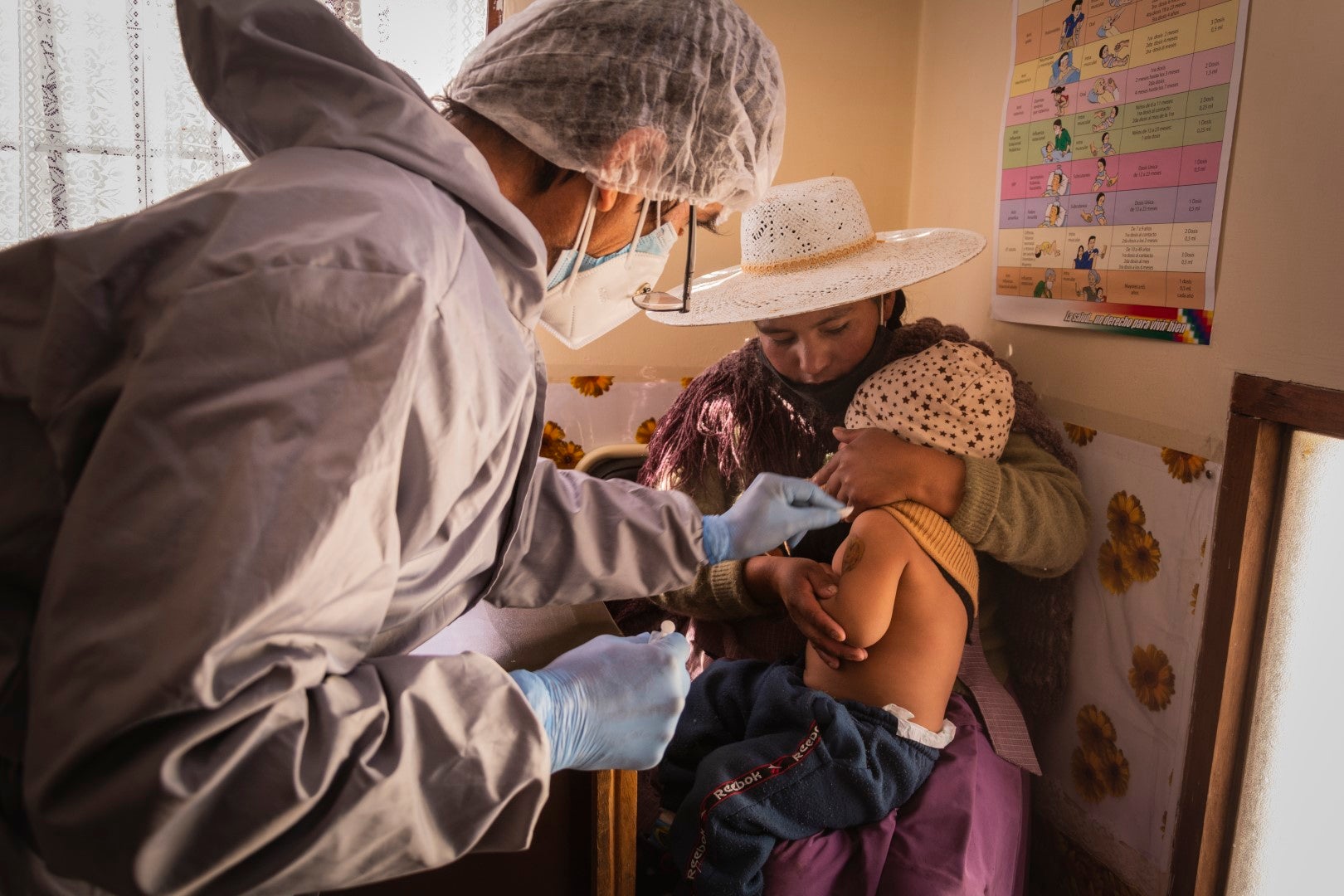Far from the center of the colonial city of Potosí is Pailaviri, a mining camp.
Far from the center of the colonial city of Potosí is Pailaviri, a camp in one of the mining areas in the foothills of the eastern side of Cerro Rico.
The Pailaviri Health Center is located immediately across from an abandoned sugar mill, in the middle of the site. Health workers in this facility have served the local population since 2008, the year it was established, thanks to the efforts of its current director, Dr. Esteban Flores.
The COVID-19 pandemic has disrupted health systems development, including vaccination. For example, this year Potosí recorded a nearly 20% decline in vaccine coverage in children under age 1, compared to the previous year. As of the end of October 2020, the Pailaviri Health Center had vaccinated 551 users at the facility, 403 individuals during campaigns, and another 445 in door-to-door visits to nearby areas.
Especially in the context of the pandemic, vaccine coverage largely depends on daily monitoring of children’s health records and the vaccine registry managed by Judith Canasa, as well as daily door-to-door visits by nursing aide Nelly Cruz.
Nelly Cruz Juan works in the Pailaviri Health Center as part of the national health program “Mi Salud.” Each day she is scheduled to visit households in order to monitor vaccination, especially of the camp’s children.
After years of service, she knows by heart the first and last names of just about everyone she needs to visit. She goes door to door, providing vaccines, vitamins, and supplements, along with instructions. As she walks by, Juan (not his real name) calls out from the house next door, asking her to give him a shot.
“I always bring extra vaccines in case this happens. […] the vaccines make people feel protected. He’s going to get the tetanus shot.”
Making her way down the street, she runs into a mother who did not go in to get her children vaccinated, saying she was afraid of the virus. Her younger daughter got her last vaccine after playing with her brother and a neighbor of about the same age. Not going to the Health Centers is one of the effects of the pandemic, which puts the wellbeing of the population at risk.
Walking through the narrow streets of the camp, we come across Encarnación babysitting six of her grandchildren. One of them needed to be vaccinated according the schedule, but the legal guardian didn’t want to since she didn’t know where to find the vaccination record. According to reports provided to PAHO by Bolivia’s EPI (Expanded Program on Immunization), there are 59,282 children from 1 to 5 years of age in Potosí who have not received the vaccine for measles and rubella or the triple vaccine (MMR).
Near the end of her route in block 21 of the camp, she knocked on the door of Miriam Ballesteros, who is the mother of three children, the youngest of whom is 13-month-old Gael. Miriam takes great care to protect her children’s health.
Miriam talked about how she learned from the nurses at the health center about how to care for her children’s health, and she has shared this knowledge with her friends and younger sisters. In mining areas, financial responsibility primarily falls on the men, most of whom work in the mines of Cerro Rico de Potosí. Of the 11 types of job at the mine, only one can be done by women: “pallir,” which refers to picking out ore from leftover residues. In this social context, it’s the mothers who are in most cases responsible for the wellbeing of their families.
Miriam sadly relates how a friend and other mothers in the area do not take responsibility for their children. “You shouldn’t have children just for the sake of having them. We should be more conscientious […] and protect their future. One day we won’t be there and that child is going to suffer. It’s best to protect them.”
Nelly also regrets the lack of concern on the part of some mothers in the area, but she applauds the responsibility of many others. As a mother of two girls under the age of 5, she complies with the full vaccine schedule and wants to offer that same benefit to the children in the camp, since she believes that “vaccination has no borders.”













